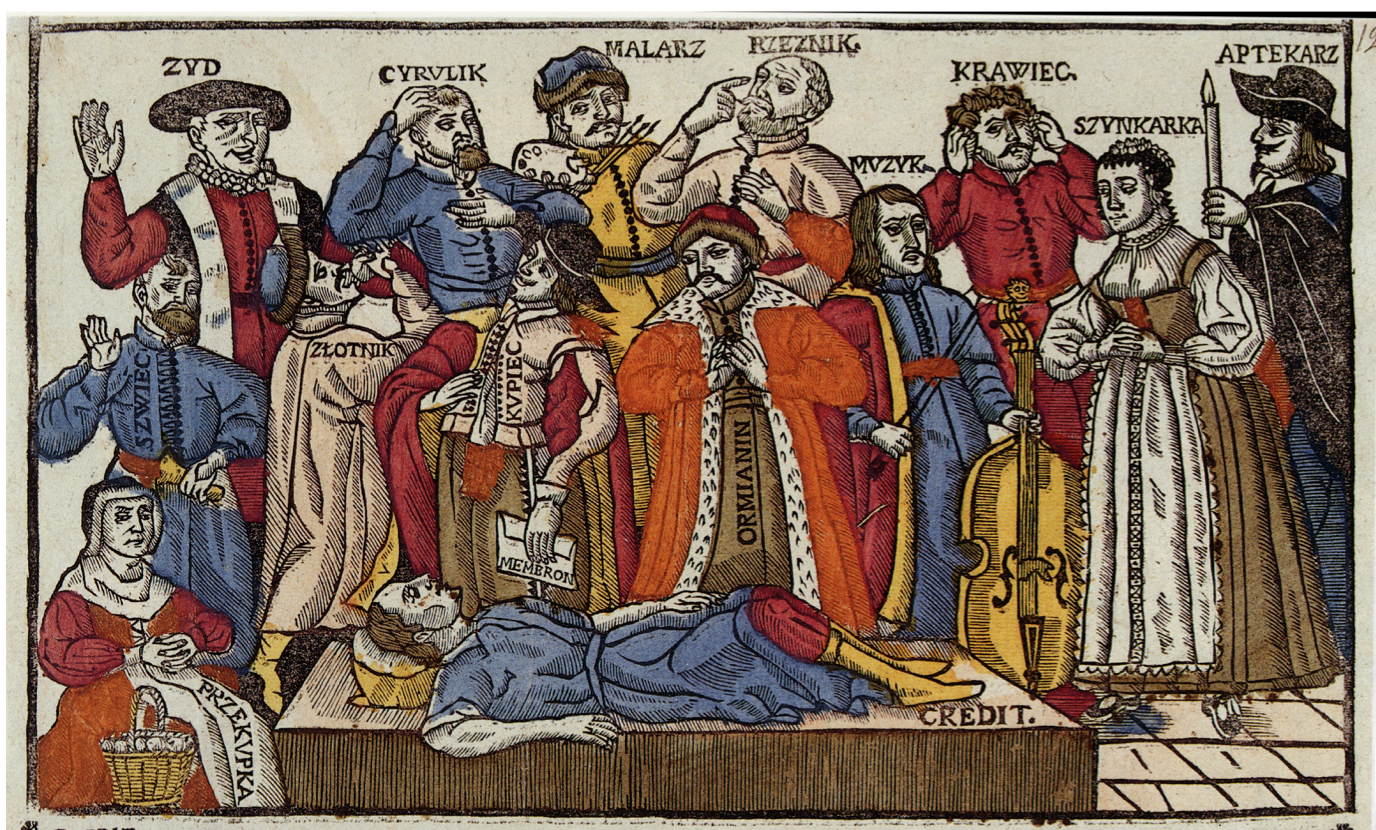
- This event has passed.
In Dialogue on Polish-Jewish Relations: Part I
Thursday, October 4, 2018, 6 – 8 p.m.

Modern-day Poland, a medium-sized European country with a predominantly ethnically Polish and Roman Catholic population, obscures its longer history. For hundreds of years Poland was not only the largest state in Europe, but also one of its most ethnically and culturally diverse states. It was also home to the largest population of Jews in the world. Since the end of World War II, with the loss of religious and ethnic groups, this complex past has been muted, if not forgotten.
This series of four events, jointly organized by Columbia University, Fordham University, and the YIVO Institute for Jewish Research, will explore the complex history of Poland and its shifting borders, focusing on the shared—but much misunderstood—past of Polish Jews and Christians. It will provide historical and cultural tools to foster better understanding of Poland’s history, Polish-Jewish relations, and of the tensions between history and memory, exclusion and belonging, national ideologies, and identities, including antisemitism.
This evening focuses on the Polish-Lithuanian Commonwealth and the period of the partitions. Magda Teter (Fordham University) and Brian Porter-Szűcs (University of Michigan) will discuss Jewish-Christian relations of this period, the Jews’ place in the social fabric of the commonwealth, their belonging and exclusion, and the transformation from the multi-ethnic Polish-Lithuanian Commonwealth to 19th-century nationalist ideologies that simultaneously used and obscured the country’s complex past. The conversation examines the way these perceptions of the past have figured into contemporary memory and historiography in creating competing visions and myths of the past that served modern national ideologies and identities.
About the Speakers
Magda Teter is a professor of history and the Shvidler Chair of Judaic Studies at Fordham University. She is also a fellow of the American Academy of Jewish Research. Teter is the author of Jews and Heretics in Catholic Poland (Cambridge, 2005), Sinners on Trial (Harvard, 2011), and two edited volumes, as well as numerous articles in English, Italian, Polish, and Hebrew. Her work has been supported by the Cullman Center for Scholars and Writers at the New York Public Library (2017–2018), the John Simon Guggenheim Memorial Foundation (2012), the Harry Frank Guggenheim Foundation (in 2007 and 2012), the Memorial Foundation for Jewish Culture, the YIVO Institute, and the Yad Ha-Nadiv Foundation (Israel), among others. In 2002, she was a Harry Starr Fellow in Jewish Studies at Harvard University; in 2007–2008, she was an Emeline Bigelow Conland Fellow at the Radcliffe Institute for Advanced Studies also at Harvard University. She has served as the co-editor of the AJS Review and as the vice-president for publications of the Association for Jewish Studies.
Brian Porter-Szűcs is an Arthur F. Thurnau Professor of History at the University of Michigan in Ann Arbor, where he has taught since 1994. He is the author of Poland and the Modern World: Beyond Martyrdom (Wiley Blackwell, 2014), Faith and Fatherland: Catholicism, Modernity, and Poland (Oxford University Press, 2010), and When Nationalism Began to Hate: Imagining Modern Politics in 19th Century Poland (Oxford University Press, 2000), which was translated into Polish as Gdy nacjonalizm zaczął nienawidzić: Wyobrażenia nowoczesnej polityki w dziewiętnastowiecznej Polsce (Pogranicze, 2011). Together with Bruce Berglund, he co-edited Christianity and Modernity in East-Central Europe (Central European University Press, 2010). In early 2019, his book Całkiem zwyczajny kraj: Historia Polski bez martyrologii will be released by the Warsaw publisher WAB.
This event is co-presented by Columbia University, Fordham University, and the YIVO Institute.


